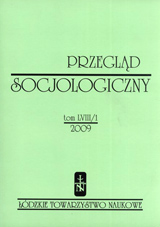Kontrakt socjalny – założenia a realizacja. Przykład łódzki
The social contract – assumptions and realisation. The example of Lodz
Author(s): Agnieszka Golczyńska-Grondas, Agnieszka Kretek-KamińskaSubject(s): Social Sciences
Published by: Łódzkie Towarzystwo Naukowe
Keywords: contract in social work; social worker; limitations of the social work practice; apparent actions in social work
Summary/Abstract: One of the basic tools used in social assistance in the majority of European countries is a contract. It is an agreement between a social worker and the person who benefits (or their family) which defines and exactly describes their mutual obligations, expectations, rights and responsibilities. Theoretically, a contract is supposed to be an effective way to identify the client’s problems and to make both sides work harder to enable the client to gain greater personal autonomy. Sadly, there are various limitations and difficulties in social work practice and in the legal and organizational context capable of distorting the principles of a contract’s completion. Through the contract, both workers and clients sometimes realize different interests and achieve different goals than were expected. The article shows the ways, conditions and limitations of fulfilling the contract in Poland.
Journal: Przegląd Socjologiczny
- Issue Year: 58/2009
- Issue No: 1
- Page Range: 149-173
- Page Count: 25
- Language: Polish

